Best Ways to Have a Healthier Heart

Clench your fist. Squeeze it a few times.
Now imagine that fist inside your chest, pumping over and over, hard enough to pump blood and oxygen throughout your entire body—about sixty thousand miles’ worth of veins and arteries—and never resting, 24 hours a day, 7 days a week, 365 days a year.
Is it any wonder your heart needs all the support it can get?
The most important thing your heart needs is a constant, nourishing supply of blood from the coronary arteries. When we talk about heart disease, what we’re talking about is basically a hiccup in this critical delivery system: blood flow is blocked and cannot get to the heart to feed it.
Heart disease accounts for about one in every four deaths, making it the leading cause of death in the United States. According to the Centers for Disease Control (CDC), coronary artery disease, or atherosclerosis, is the most common type of heart disease among Americans. It occurs when plaque (cholesterol) builds up in the walls of the arteries, narrowing the path through which blood can flow. Left untreated, plaque can build up enough to cause chest pain and shortness of breath—a condition called angina—or it can block the arteries completely, causing a heart attack, which kills part or all of the muscle. About 805,000 Americans suffer heart attacks each year, according to the CDC.
There are a number of factors that contribute to your heart disease risk, from things you can’t control—such as family history and age—to things you can control a bit, including stress level, cholesterol levels, and blood pressure. But there’s one major risk factor for heart disease that you can control: visceral fat.
The important point is not whether you have excess fat, but where the fat is. A study published in the Journal of the American College of Cardiology found that normal-weight heart patients who have excess abdominal fat are less likely to survive than obese patients whose excess pounds are concentrated in their thighs and buttocks.
So what can you do? In order to keep your heart as healthy as possible, here are heart-specific recommendations that will keep your ticker going strong. And while you’re at it, try out any of the 21 Best Healthy Cooking Hacks of All Time.
Eat less red meat.
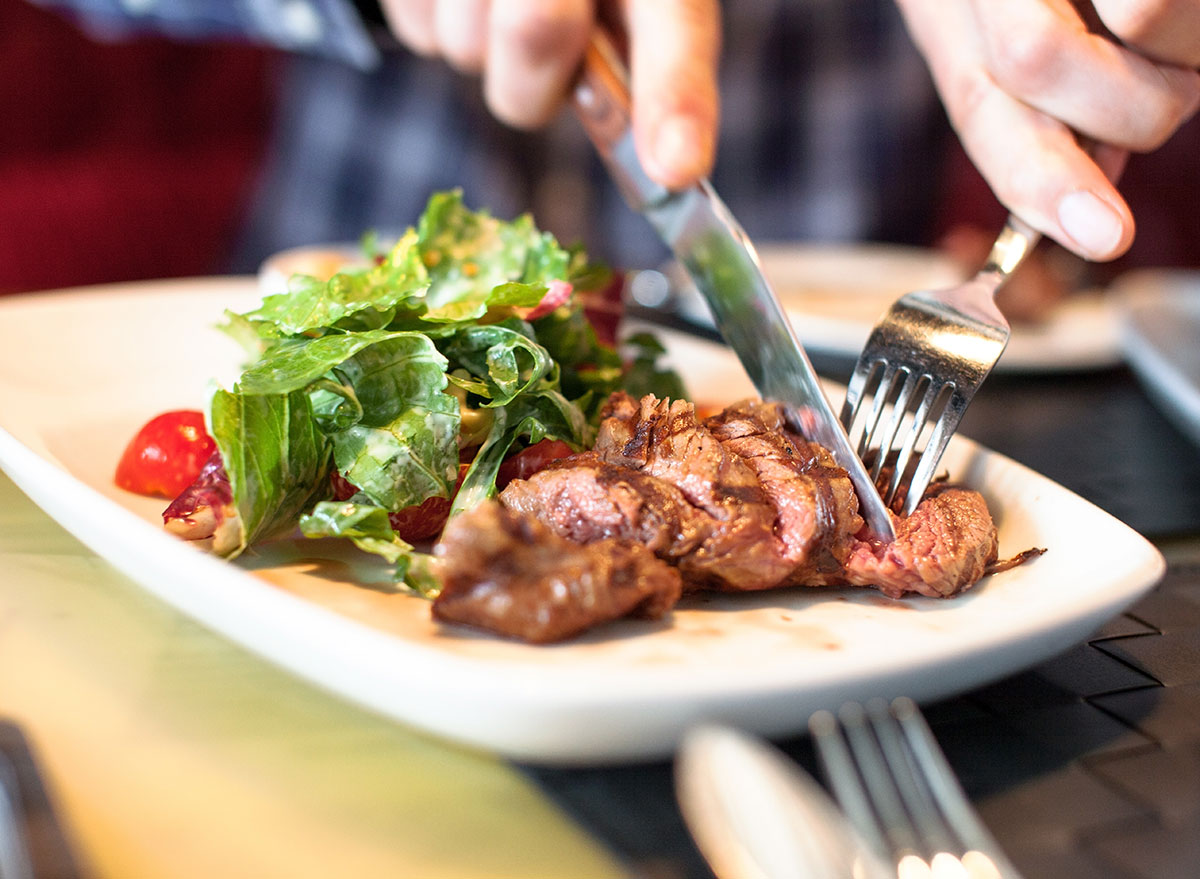
Reducing your intake of red meat to just a few times a month, or cutting it out completely, could improve your heart health by altering your gut bacteria. One study suggests vegetarians and vegans digest meat differently than carnivores, which makes them less susceptible to heart disease. Researchers call it “revenge of the cow,” and it starts with L-carnitine—a chemical found in red meat that, when a meat-eater’s gut microbes get hold of it, produces a compound called trimethylamine N-oxide, or TMAO, that hardens arteries. But your risk goes up only if you’ve made a habit of feeding these carnivorous gut bacteria. In studies, longtime vegetarians’ microbes didn’t produce much TMAO at all when they ate red meat.
Additionally, red meat is typically high in saturated fat and cholesterol—two things you want to cut down on when eating for a healthy heart.
Eat two squares of dark chocolate.
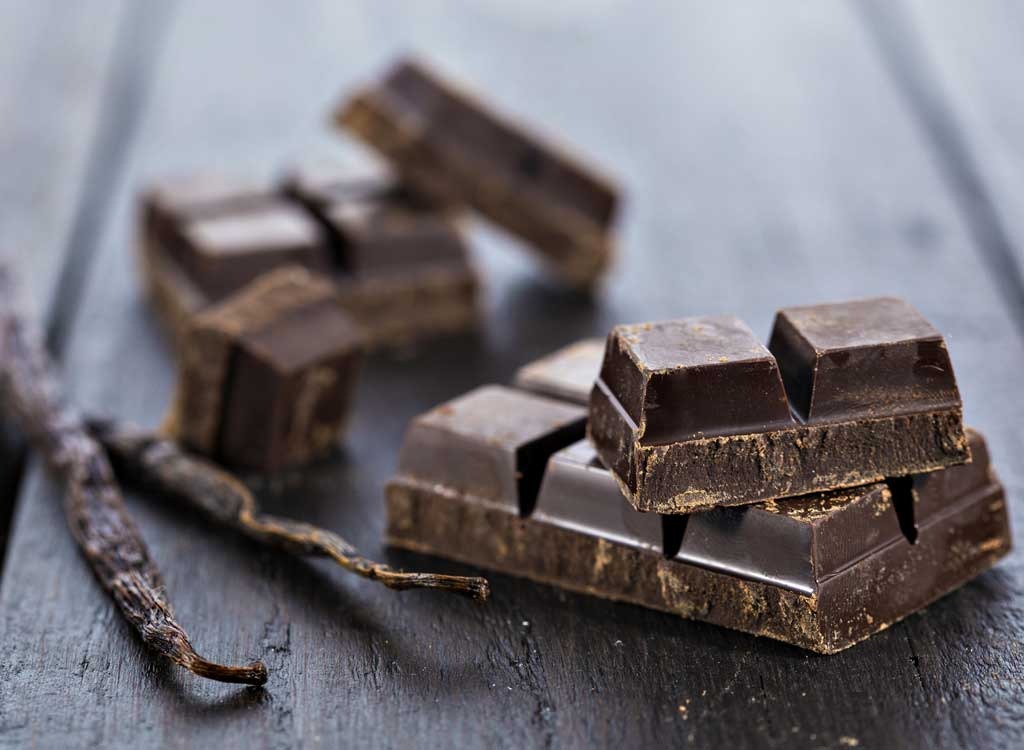
Researchers at Louisiana State University discovered that bacteria in our stomach ferment chocolate into useful anti-inflammatory compounds that are good for the heart. Gut microbes such as bifidobacteria feast on the chocolate and release beneficial polyphenolic compounds. The scientists believe that adding fruit to chocolate could boost the fermentation. Chocolate-covered strawberries, anyone?
Looking for more tips? Sign up for our newsletter to get daily recipes and food news in your inbox!
Break up with your sweetheart.
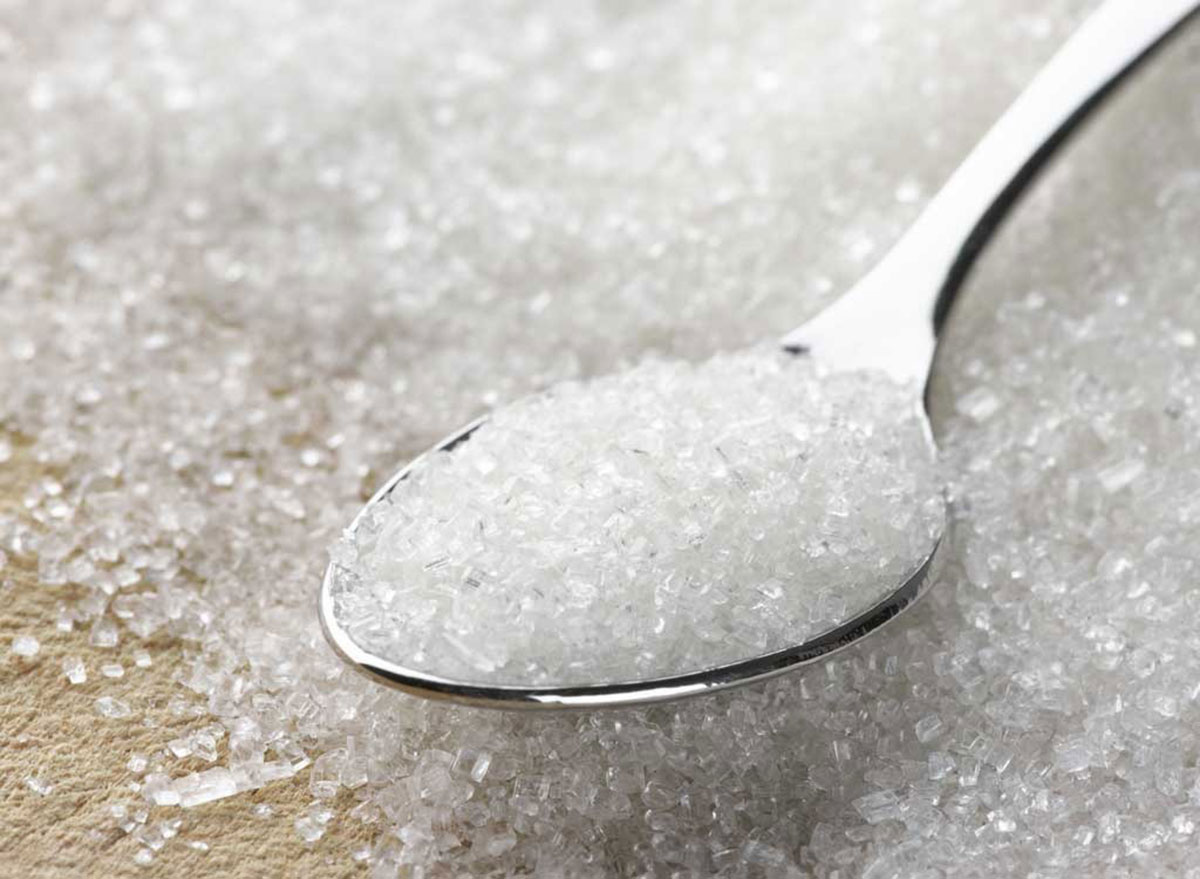
That’s right, we’re talking about sugar. Health officials are now pointing the finger at sugar as the leading dietary cause of cardiovascular issues. According to a study published in JAMA Internal Medicine, the risk of dying from cardiovascular disease more than doubled for those who consumed 21% or more of their calories from added sugar.
One of the easiest ways to reduce your added sugar intake is to cut out sugary drinks and reduce processed foods—that’s anything with a label that lists more than two or three ingredients. But don’t worry: you’ll still satisfy your sweet tooth with fresh fruits, delicious smoothies and oatmeal bowls, and plenty of delicious desserts.
Get fit(ter).

Studies suggest a combination of cardio and resistance training is the best fitness formula for the heart. That’s what makes metabolic circuits, which combine both aerobic exercise and resistance training, so effective. According to research presented at the American Heart Association’s Quality of Care and Outcomes Research Scientific Sessions, middle-aged people who increase their fitness level can radically reduce their risk for cardiovascular issues. For example, if a 40-year-old went from jogging a mile in twelve minutes to running a mile in ten minutes, he or she could reduce the risk of heart failure at a later age by 40%!
Swap salt for spice.
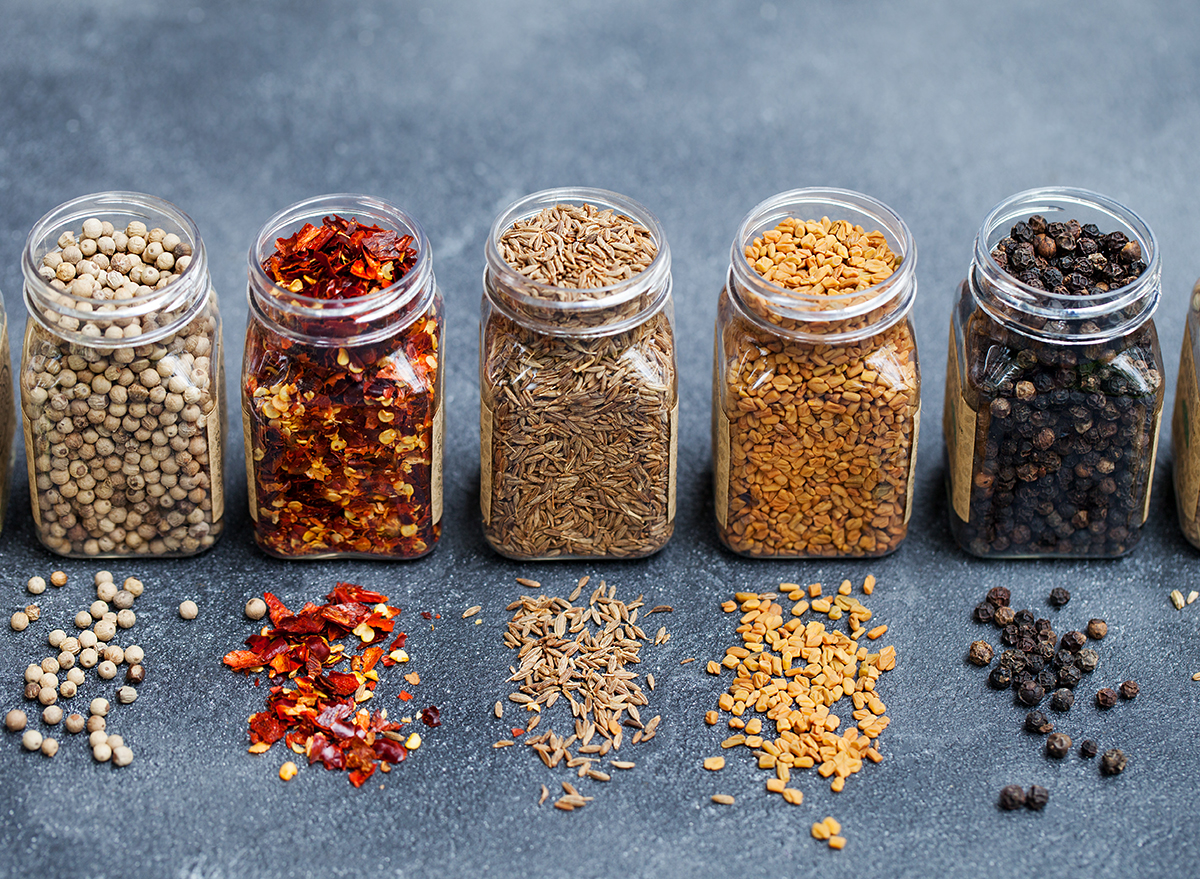
Dietary salt is known to increase blood pressure, which is itself a major risk factor for heart disease. But a directive like “eat less salt” is hard to follow, especially when the nachos are calling your name. The trick: find salt-free ways to bolster the flavor of your food.
Adults who participated in a twenty-week behavioral intervention that taught them to swap salt for herbs and spices consumed 966 milligrams less sodium per day than people who tried to reduce sodium on their own. Better yet, certain herbs and spices have proven benefits, like boosting your metabolism and blocking fat cell formation.
Let it sprout.

Ever find old heads of garlic with green sprouts growing out of them in the bottom of your fridge? Don’t toss them!
Scientists report that this over-the-hill garlic has even more heart-healthy antioxidant activity than the fresher stuff. Aged garlic extract, also known as kyolic garlic or AGE, has the same effect. One study found that participants who took four pills of AGE a day saw a reduction in plaque buildup in the arteries. And the good news is that you don’t have to down old garlic; you can find AGE supplements at most drug and health food stores, and it’s odorless.
Fill up on fiber.
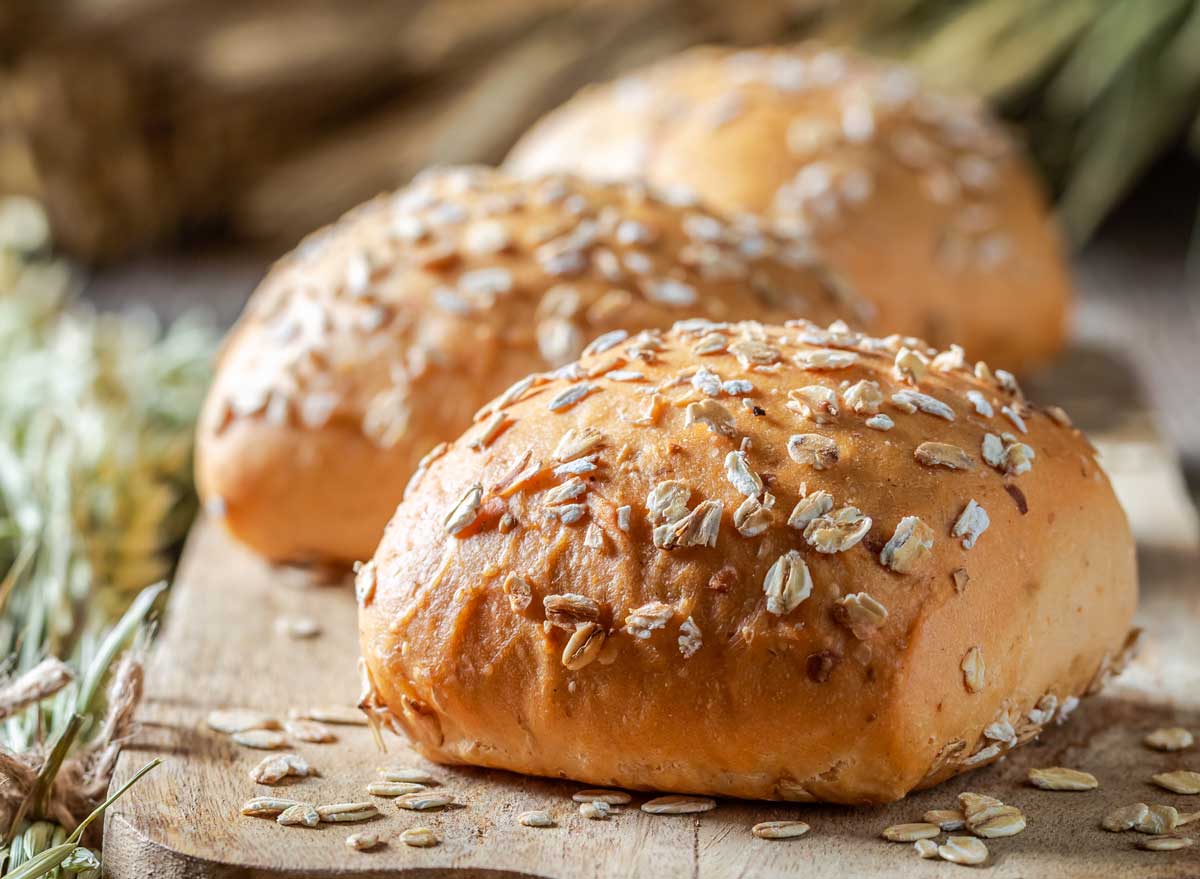
Fiber protects the heart by boosting the body’s ability to produce low-density lipoprotein (LDL) receptors, which act like bouncers, pulling “bad” cholesterol out of the blood. Researchers at the University of Leeds analyzed a number of studies and found that the risk of cardiovascular disease was significantly lower for every 7 grams of fiber consumed—that’s just one portion of whole grains, beans, or legumes, or two servings of fresh produce.
Go wild for blueberries.
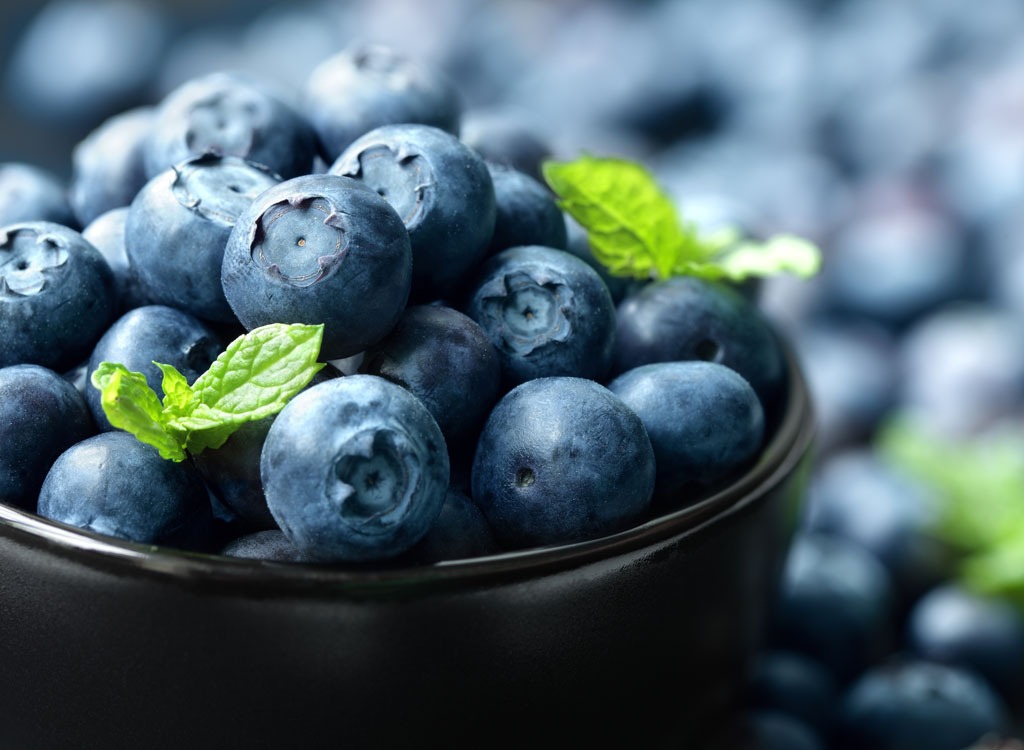
Researchers at the University of Maine found that wild blueberries are essentially the world’s best-tasting aspirin—a natural supplement for cardiovascular health, particularly blood flow to and from the heart. According to their study, wild blueberry consumption (2 cups per day) for eight weeks was shown to regulate and improve the balance between relaxing and constricting factors in the vascular wall in obese rats. Two cups is a lot, but you can up your intake by throwing 1/2 to 1 cup of the berries in your drinks and morning oatmeal. Blueberries are surprisingly tasty on green salads too!